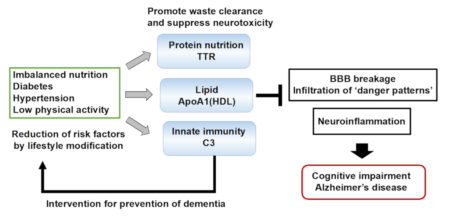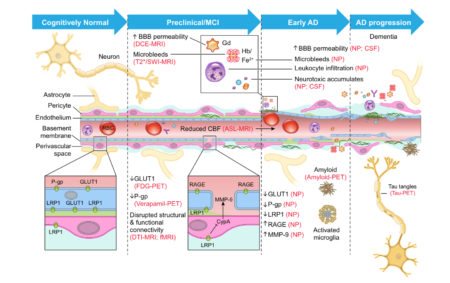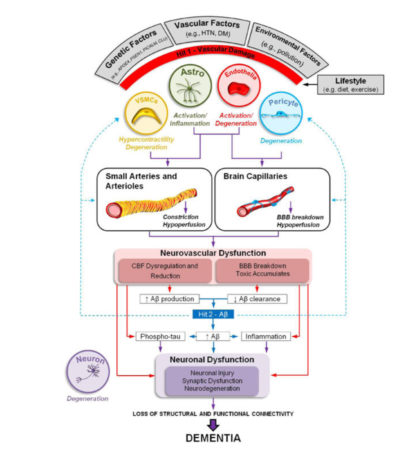If you think you might have mild cognitive impairment (MCI) Part 5: Amyloid β peptide
Apolipoprotein A1, transthyretin, and complement protein C3 in the blood,
which have been covered in our director’s diary so far,
act to eliminate amyloid β peptide that damages nerve cells from the brain and weaken its toxicity.

Amyloid β peptide
has been investigated as a major pathological factor of senile Alzheimer’s disease,
including therapeutic drugs.
Amyloid β peptide is produced by protease cleavage from amyloid precursor protein,
and among them,
amyloid β peptide 42 and amyloid β peptide 40 are
believed to be closely involved in the pathogenesis of senile Alzheimer’s disease.
Amyloid β peptide 42 accumulates in the brain parenchyma and forms senile plaques,
while amyloid β peptide 40 mainly accumulates in the walls of cerebral blood vessels
and causes cerebral amyloid angiopathy.
Since these amyloid β peptides have neurotoxicity,
they are excreted from the brain to the periphery,
but their excretion ability is impaired in Alzheimer’s disease.
Consequently,
senile Alzheimer’s disease is associated with
excessive accumulation of amyloid β peptide 42 in the brain.
On the other hand, the concentration of amyloid β peptide decreases
in cerebrospinal fluid and peripheral blood due to decreased excretion of amyloid β peptide.

Comparing senile Alzheimer’s disease, mild cognitive impairment, and cognitively healthy elderly,
circulating amyloid β peptide 40 was significantly increased in senile Alzheimer’s disease,
and amyloid β peptide 42 was significantly increased in cognitively healthy elderly.
and significantly decreased in mild cognitive impairment and senile Alzheimer’s disease.
One of the reasons for the increase in dementia patients such as senile Alzheimer’s disease is
the increase in lifestyle-related diseases such as hypertension and diabetes.
Recent studies have shown that
the production of amyloid β peptide from amyloid precursor protein itself
is a normal physiological reaction,
and that amyloid β peptide is excreted from the brain as a waste product.
Decreased excretion associated with aging
causes the accumulation of amyloid β peptide in the brain and the resulting inflammation,
which is thought to be the pathology of senile Alzheimer’s disease.


